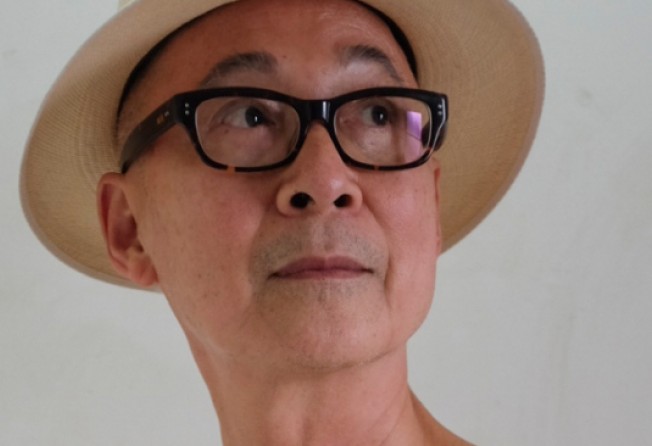
Photographer and filmmaker Yonfan talks retirement and Wong Kar-wai
The movie director has two new books about film out, based on columns he wrote for Next magazine

48 HOURS: Your new book Fu Hwa has 12 articles devoted to Wong Kar-wai films. Both of you are renowned for making movies with beautiful images and have been called "aesthetic directors". Do you think he's your kindred spirit?

Where did the idea for the book come from?
I had been writing a column for Next magazine for two years. In the first year, I wrote fiction. In the second year, I wrote 60 articles, which have been collated into two books for publication. The first one is Fu Hwa. Writing a book and writing for magazines are two different things. So for the book, I added in pictures and a postscript that was not published in the magazine. The postscript is about my thoughts after writing the columns. I think the postscript is an even better read than the articles. The book has travelogues from Rome, Paris, Turkey and South America. The travelogues are combined with my experiences, like when I made movies in Singapore.
What is the second book about?
The second book is Liu Jin. It touches on Hong Kong movies during their heyday of the '60s. There are eight articles on [late Chinese director] Li Han-hsiang. I also wrote about the popular stars during Li's time, such as Li Lihua and You Min, with whom I am personally familiar. It goes on to talk about Chinese opera, the West Kowloon Bambook Theatre, Bak Shuet-sin and [late Chinese-born Japanese actress and singer] Yoshiko Yamaguchi. It's very operatic. By the end of the book, I wrote about Chow Yun-fat, Cherie Chung Chor-hung and Brigitte Lin Ching-hsia.
Your movies made more recently were commercial flops. What do you think about that?
I've wanted to make my own movies and write scripts since I was young. I made my first movie, A Certain Romance, in 1984. I stopped making movies eight years ago. I had two movies which were blockbusters at the time. One was Lost Romance (1986) with Chow Yun-fat and Maggie Cheung. The other was Last Romance in 1988 also starring Maggie Cheung. In Between [in 1994] racked up more than HK$20 million in box office earnings. Admittedly, the movies I made after the '90s did not do well. But at that time, I looked down upon movie hits.
Do contemporary movie stars lack the star power and charisma of the greats of yesteryear?
I haven't made movies for eight years. The movie stars I worked with in the past no longer make movies. I don't want to comment on the current stars. The times have changed a lot. Making movies was not easy in my time. Now you can make one with an iPhone. When I started making movies, I was using 35mm film.
What have you been busy with lately?
I write about the things I love writing about. I am no longer a public figure. Writing is better than making movies. Making movies involves dealing with lots of people such as stars, bosses, media and production crew. Over the past eight years since I stopped making movies, I no longer need to cope with such people. I am very happy. Words can create lots of things like music and images. You don't need to play music for people to listen to. Good writing can elicit the same feelings as good music.
You took photos of many celebrities before closing your studio in 1995. Where did you learn photography?
It's inborn. I've known how to do such things as photography, writing and making movies since I was born. I didn't learn about them from anywhere. I took the images for the covers of the two books myself. It's easy to do them. I don't need to be humble about it. In the past, I was among the top high-paid Hong Kong photographers. In 1995, I made a public announcement of not taking pictures for people any more. When people approached me for portraits, I refused no matter how much they offered to pay me. I just don't want to take them any more.